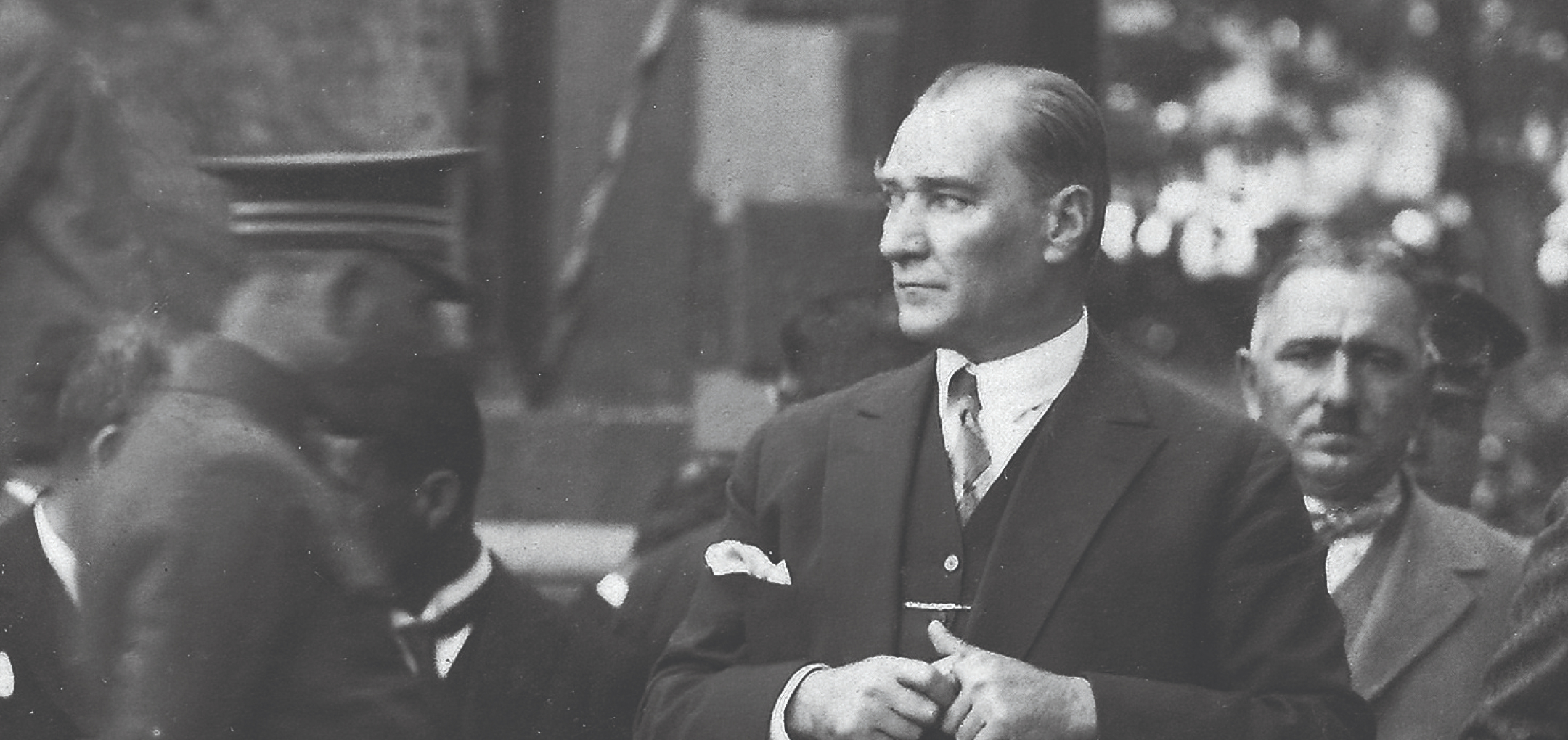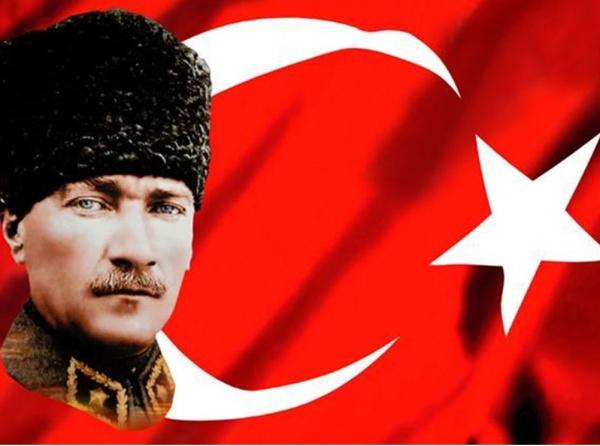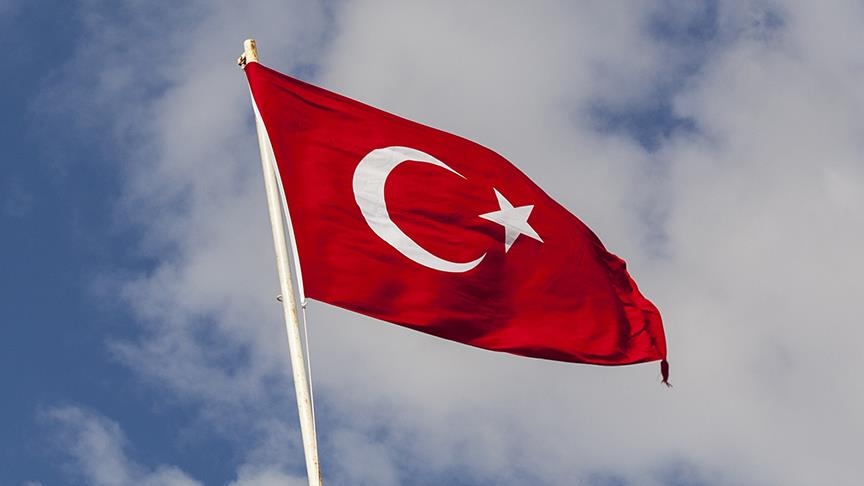The Father of Turks: Atatürk and Foundation of Turkey
Mustafa Kemal Atatürk: A Visionary Leader's Life and Legacy
Mustafa Kemal Atatürk, born in 1881 in Salonica, Ottoman Empire, is widely revered as the founding father of the Republic of Turkey. His life journey, marked by remarkable leadership, military prowess, and progressive reforms, transformed a crumbling empire into a modern, secular nation-state. This article delves into the life, achievements, and enduring legacy of Atatürk, a visionary whose impact continues to shape Turkey and inspire leaders worldwide.
Early Life and Military Career:
Mustafa Kemal was born in Salonica (now Thessaloniki, Greece) to Ali Rıza Efendi and Zübeyde Hanım. He received his education at military schools, excelling in academics and leadership. Graduating from the Military Academy in Istanbul, he joined the Ottoman army and rose through the ranks swiftly, displaying exceptional strategic acumen during World War I, particularly in the Gallipoli Campaign.
Leadership during the War of Independence:
Following the Ottoman Empire's defeat in World War I, Mustafa Kemal emerged as a central figure in the Turkish national movement. He led the Turkish War of Independence against invading Allied forces, rallying the Turkish people with his charismatic speeches and unwavering determination. His strategic brilliance culminated in the decisive victory at the Battle of Sakarya in 1921, leading to the eventual establishment of the Republic of Turkey.
Founding the Republic and Reforms:
As the first President of Turkey, Atatürk embarked on an ambitious program of modernization and secularization, aiming to transform Turkey into a modern nation-state. His reforms included the adoption of a new legal system based on European models, the introduction of a new alphabet to replace the Arabic script, and the implementation of women's rights, including granting them the right to vote and hold public office.
Cultural and Social Transformation:
Atatürk envisioned a society based on science, reason, and progress. He championed education as a means of enlightenment and societal advancement, instituting widespread educational reforms and establishing institutions of higher learning. His cultural policies promoted Turkish nationalism while embracing the country's rich historical heritage, fostering a sense of national identity and unity.
Legacy and Impact:
Mustafa Kemal Atatürk's legacy extends far beyond the borders of Turkey. His visionary leadership and bold reforms continue to inspire leaders and nations around the world. He remains a symbol of modernization, secularism, and progress, revered by millions for his unwavering commitment to the principles of democracy, equality, and national sovereignty.
Conclusion:
Mustafa Kemal Atatürk's life was characterized by extraordinary courage, intellect, and foresight. As the architect of modern Turkey, his legacy endures as a beacon of hope and inspiration for future generations. Through his visionary leadership and transformative reforms, Atatürk laid the foundation for a vibrant, democratic society rooted in the principles of freedom, equality, and progress.
Mustafa Kemal Atatürk: Key Milestones in the Life of a Visionary Leader
Mustafa Kemal Atatürk, born in 1881 in Salonica, Ottoman Empire, stands as one of the most influential figures of the 20th century. His life was marked by pivotal moments that shaped not only the destiny of Turkey but also reverberated across the world stage. This article chronicles the significant milestones in Atatürk's life, from his early years to his transformative leadership as the founder of the Republic of Turkey.
Early Years and Education:
Mustafa Kemal was born to Ali Rıza Efendi and Zübeyde Hanım in a tumultuous period of the Ottoman Empire's decline. His formative years were influenced by the empire's fading glory and the emergence of nationalist sentiments. After receiving his education in military schools, Mustafa Kemal displayed remarkable intellect and leadership qualities, setting the stage for his future endeavors.
Military Career and Gallipoli:
Atatürk's military career catapulted him into prominence during World War I, particularly with his strategic brilliance in the Gallipoli Campaign of 1915. His successful defense against Allied forces earned him widespread acclaim and laid the groundwork for his future role as a national leader.
Leadership in the Turkish War of Independence:
Following the Ottoman Empire's defeat in World War I and the subsequent partitioning of its territories, Atatürk emerged as the central figure in the Turkish national movement. Leading the Turkish War of Independence against invading Allied forces and internal collaborators, he galvanized the Turkish people with his unwavering determination and visionary leadership. The decisive victory at the Battle of Sakarya in 1921 marked a turning point in the struggle for independence, paving the way for the establishment of the Republic of Turkey.
Founding the Republic and Reforms:
As the first President of Turkey, Atatürk embarked on a monumental journey of nation-building and modernization. His visionary reforms encompassed every aspect of society, including politics, law, education, culture, and religion. From the introduction of secularism and the adoption of a new alphabet to the promotion of women's rights and the establishment of a democratic system, Atatürk's legacy of reform continues to shape Turkey's identity and trajectory.
Legacy and Global Influence:
Mustafa Kemal Atatürk's legacy transcends national boundaries, inspiring leaders and movements worldwide. His emphasis on secularism, modernization, and national sovereignty resonates with societies grappling with the challenges of the modern world. Atatürk's principles of democracy, equality, and progress remain as relevant today as they were during his lifetime, serving as a beacon of hope for those striving for a better future.
Conclusion:
Mustafa Kemal Atatürk's life journey is a testament to the transformative power of visionary leadership and unwavering commitment to principles. From his humble beginnings to his enduring legacy as the founder of modern Turkey, Atatürk's influence reverberates through the annals of history, inspiring generations to strive for progress, unity, and freedom. As Turkey continues to navigate the complexities of the 21st century, Atatürk's principles serve as a guiding light, reminding the world of the enduring legacy of a visionary leader.
The Formation of Turkey: A Historical Journey Towards Modernization and Sovereignty
The establishment of the Republic of Turkey in 1923 marked a pivotal moment in history, representing the culmination of centuries of socio-political evolution and the dawn of a new era for the Turkish people. This article explores the multifaceted process of Turkey's formation, encompassing the demise of the Ottoman Empire, the struggle for independence, and the visionary leadership of Mustafa Kemal Atatürk in shaping the modern Turkish state.
The Decline of the Ottoman Empire:
The Ottoman Empire, once a vast and powerful entity spanning three continents, experienced a gradual decline in the face of internal strife, external pressures, and technological advancements in the 19th and early 20th centuries. Economic stagnation, administrative inefficiency, and military defeats weakened the empire, leading to the loss of significant territories and a growing sense of disillusionment among its diverse population.
The Rise of Turkish Nationalism:
Amidst the turmoil of World War I and the subsequent partitioning of Ottoman territories by European powers, Turkish nationalism emerged as a potent force for change. Intellectuals, military leaders, and ordinary citizens coalesced around the idea of preserving Turkish identity and sovereignty, laying the groundwork for the Turkish War of Independence.
The Turkish War of Independence:
Led by Mustafa Kemal Atatürk, the Turkish War of Independence (1919-1923) was a heroic struggle against foreign occupation and domestic collaborators. The Nationalist forces, fueled by a fervent desire for self-determination, waged a determined campaign against Allied powers and Greek, Armenian, and Kurdish militias. The pivotal Battle of Sakarya in 1921 marked a turning point, leading to the eventual victory of the Turkish nationalists and the signing of the Treaty of Lausanne in 1923.
The Establishment of the Republic:
On October 29, 1923, the Republic of Turkey was officially proclaimed, with Mustafa Kemal Atatürk as its first President. The new republic embarked on a comprehensive program of modernization, secularization, and nation-building, aiming to transform Turkey into a modern, democratic nation-state. Atatürk's bold reforms encompassed political, social, cultural, and economic spheres, laying the foundation for Turkey's emergence as a regional power and global player.
Atatürk's Reforms and Legacy:
Mustafa Kemal Atatürk's visionary leadership and progressive reforms shaped the trajectory of modern Turkey. His initiatives included the adoption of a new legal system based on Western models, the introduction of a secular education system, the establishment of women's rights, and the promotion of Turkish nationalism. Atatürk's legacy as the founding father of Turkey endures as a symbol of modernization, progress, and national unity.
Conclusion:
The formation of Turkey was a complex and transformative process that reshaped the destiny of the Turkish people and the broader geopolitical landscape of the Middle East. From the ashes of the Ottoman Empire emerged a modern, secular republic, guided by the principles of democracy, equality, and national sovereignty. The enduring legacy of Mustafa Kemal Atatürk and the heroic sacrifices of the Turkish people during the War of Independence continue to inspire generations, reaffirming Turkey's place as a beacon of hope and progress in the region.









































